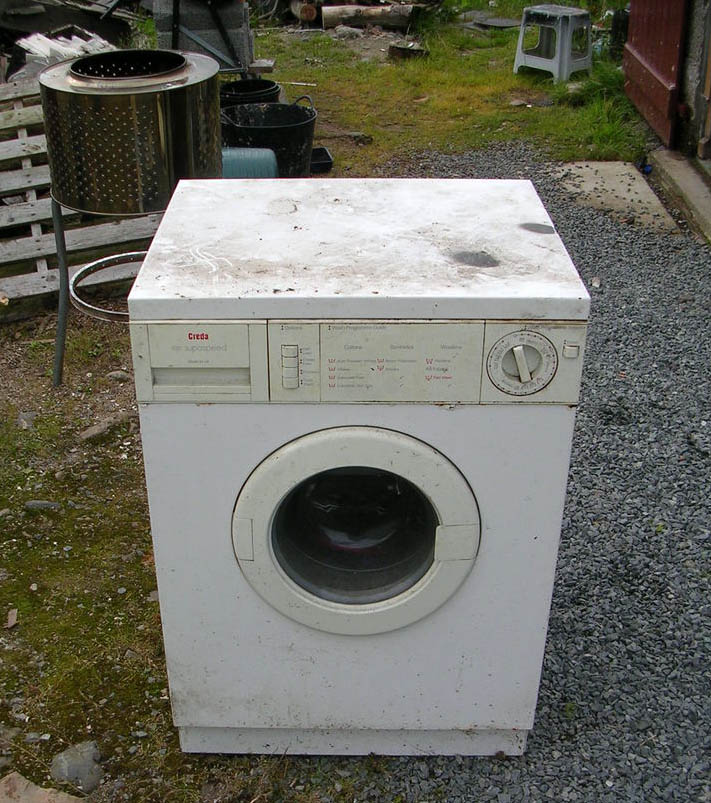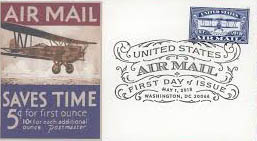
Over coffee the other day, some friends shared an experience about modern-day delivery. A clothes washer had broken down at their house, so they weighed their options. Take the old one to the curb for pick-up and buy new, or try to extend the life of the old washer by attempting a repair.
Not surprisingly, my friend went online, learned about the problem and determined that a $10 part might repair the washer. The question was: How long would it take the part to arrive? It was a Saturday, but he ordered the part anyway.
“They guaranteed next-day delivery,” he said, then added sarcastically, “Sunday delivery? Not likely. Sure enough, though, next day we got back from church and this van pulled up to deliver the part. Couldn’t believe it!”
I couldn’t either. In fact, my friend and I both wondered how expensive it must have been to have that washer part sourced in Mississauga, Ont., loaded on a truck, transported across the GTA, and then hand-delivered on a Sunday to a home in Uxbridge, northeast of Toronto.
I mean the cost of the gas round-trip alone would have totalled $100, and minimum wage for the driver for several hours, another $100. And I thought, is the race for my business that cut-throat these days that a firm has to deliver a $10 part within a day to Uxbridge in order to stay competitive? And from the customer’s perspective, is it that vital for me to have that washer part, a piece of clothing, a household accessory, a book, a CD … that fast, for me to remain loyal to a business?

I guess it’s a sign of the times. I’m old enough to remember when mail ordering by so-called “snail mail” was a phenomenon. As a kid, I could clip a coupon from the back of a comic book and send in for sea-monkeys or a replica of the Polaris nuclear submarine. The days/weeks of anticipation nearly drove me crazy. But, oh, the satisfaction when they arrived, somehow made the experience of receiving them all the more rewarding.
 I used to send away for “first day covers,” when postage stamps were first issued from Ottawa or U.S. locations, or the United Nations; receiving the brand-new stamps with special cancellation on the envelope at my home address or the post box was the equivalent of a Christmas present from the post office.
I used to send away for “first day covers,” when postage stamps were first issued from Ottawa or U.S. locations, or the United Nations; receiving the brand-new stamps with special cancellation on the envelope at my home address or the post box was the equivalent of a Christmas present from the post office.
When we lived on a farm near Bethany, and later on an acreage outside Saskatoon, each spring I even mail-ordered evergreen trees – pines and spruces. I guess if I ordered such things today they’d come to me in some high-tech box for greenery, again overnight. But back in the 1960s and ’70s, once the order was ready, we actually had to travel to the Lands & Forests tree farm where the seedlings had been planted and bring home bundles of trees in the back of the truck, all ready for planting.
Somehow part of the joy of ordering these things – sea monkeys, sub replicas or Christmas trees – came from the anticipation and often the hands-on ways in which we brought things home to be enjoyed. All of this is lost today in a “just in time” and “overnight delivery guarantee” environment.
In contrast to my friend’s surprisingly rapid receipt of his clothes washer part, this week, a couple of weeks ago, I went to a local automotive repair shop in town. The air conditioner in my car had decided to die just as the recent heat wave began. The mechanic quickly located the problem. He said that the high-pressure liquid line – a narrow tube – connecting the condenser and the evaporator – two vital parts of the A/C unit – needed to be replaced.
 “OK,” I said. “When can you fix it?”
“OK,” I said. “When can you fix it?”
“I can’t right now,” he said. “I checked for the part and they told me, ‘There are none in North America.’ I couldn’t believe it either.”
It occurred to me, on the other side of that overnight delivery guarantee that my friend enjoyed, is a 21st century system that produces parts on a “just in time” basis, meaning that with rapid delivery, a manufacturer can delay making a part (i.e. save money) until the very last minute. Then, when an order arrives, s/he makes the part, quickly sends it to a distributor and completes the delivery overnight.
Except that in this case, it’s likely that the auto builder had not anticipated a sudden call for high-pressure liquid lines (i.e. their design suddenly experienced failure all over North America at the same time) and they couldn’t cope with the surge in demand.
Now weeks later, we’re still in a heat wave. I have no part and no car A/C. I’ve found myself wishing my clothes washer had broken down instead of the air conditioner in my car.